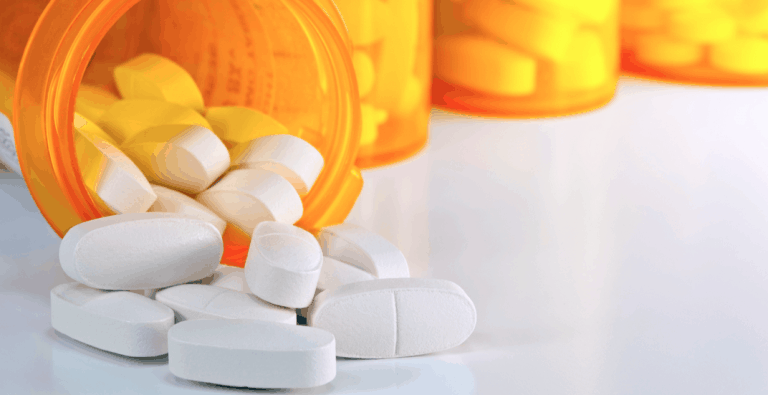If other men in your family have also suffered from chronic prostatitis/chronic pelvic pain syndrome (CP/CPPS), you may be wondering if it is genetic. Evidence suggests that genetics and hormones may actually play a role in the development of prostatitis.
Genetics is your family history of passing down or inheriting genes from generation to generation. Recent research on genes has suggested that men who have a family history of prostate disorders (especially related to autoimmune disorders) are associated with an increased risk of developing urologic pain and chronic CP/CPPS. There have been some interesting studies on the genetic makeup of men showing a genetic predisposition to CP/CPPS due to similar differences in specific mutant alleles (9.5 and 10 are much more common in men with CP/CPPS). A study has shown that that 30% of CPPS patients have a low IL-10 producing genotype, whereas this only occurred on 12% of controls. According to a 2011 study, men with a specific genetic predisposition can be susceptible to having a pelvic pain condition due to a virulent strain of E. coli. Even after this bacterial infection ends, the pain condition persists.
Some studies on mice have shown a genetic predisposition for chronic prostatitis, especially in connection with autoimmune disorders. Two different studies found a connection between non-obese diabetic mice or autoimmune conditions resembling rheumatoid arthritis with autoimmune prostatitis.
Just as autoimmune reactions can run in families, there are many men with CPPS whose fathers have CPPS or related autoimmune diseases. Sometimes twin brothers both suffer from pelvic pain. More mouse research has found that mice that are genetically susceptible to prostatitis also developed spontaneous autoimmune lesions of the genito-urinary tract, even if they were in a germ-free environment.
On the other hand, despite current research, we really do not understand the potential role of genetics plays a cause of chronic prostatitis. Further research is needed to determine the connection and what men can do about treatment and prevention if they do have a genetic predisposition.
Another factor that can contribute to CP/CPPS is hormones, or more specifically, hormone imbalance. It has been proposed that a hormone imbalance can cause chronic prostatitis symptoms, however, it is not well studied and is controversial. A study on rats concluded that genetics, advancing age, and hormonal imbalance are all important factors in prostatitis. Studies on estrogens and phytoestrogens have not found any significant relationship to prostatitis symptoms. Some studies suggest that environmental factors and toxins can influence the way hormones react in the body.
One hormone that does seem to play a large role in chronic prostatitis is the stress hormone, cortisol. Studies have found that men with CPPS tend to have elevated cortisol responses when compared with controls. Men suffering with CPPS tend to have elevated responses to many psychological issues including:
- how they perceive stress,
- anxiety,
- depression,
- hostility,
- obsessive/compulsive behavior,
- fears,
- paranoid behaviors,
- altered hypothalamic-pituitary adrenal axis function in response to acute stress,
- and more.
While we know that autoimmune process may be involved with the development of prostatitis, experimental evidence indicates that this can be under hormonal influence. Recent findings include possible defects in the androgen receptor. In these cases, the prostate itself may not even be the source of the symptoms or related to the pain or other symptoms. Pelvic pain also correlates with the neurotrophin nerve growth factor implicated in neurogenic (originating in nerves or nervous tissues) inflammation and central sensitization.
Psychological stress may produce measurable biochemical changes and influence the other processes. The role of normal prostatic bacterial flora in inciting the inflammatory response has also been reconsidered. Because there can be so many factors in what is causing prostatitis symptoms, a whole-body approach to wellness with using multiple forms of treatment is the best way to manage this complicated condition.
There are some chronic prostatitis causes that are possibly related to genetics and hormones, including stress and emotional health, mast cells, inflammation, and neutrophil dysfunction. These causes are related to immune or hormone responses and disorders, and can increase inflammation in the body or an area of the body. Inflammation is one of the major chronic prostatitis causes often leading to other causes of pelvic pain such as pelvic floor disorder and chronic tension disorder.
There are several natural prostatitis treatments you can turn to if your chronic prostatitis may stem from genetics and hormones. Taking prostate supplements and eating the right diet can help support a healthy immune system and even help balance your hormones. Knowing what foods to avoid for prostatitis can help keep inflammation down and help prevent flare-ups. Alternative prostatitis treatments that may be helpful include stress management and related relaxation exercises such as meditation, yoga, and tai chi. Some patients also do well with biofeedback therapy.
Reference for Genetics and Hormones:
Pontari MA et al. Mechanisms in prostatitis/chronic pelvic pain syndrome. Journal of Urology 2004 Sep; 172(3): 839-45







